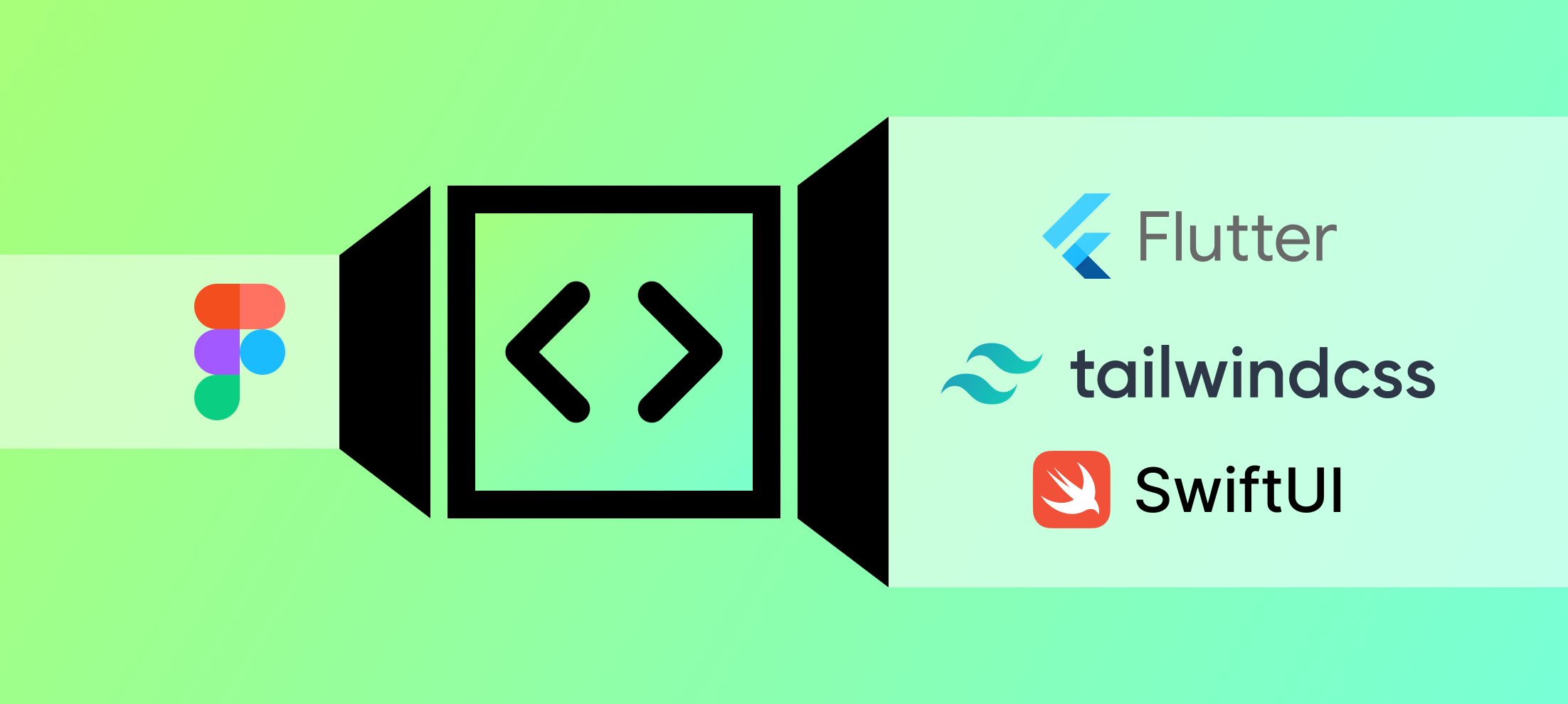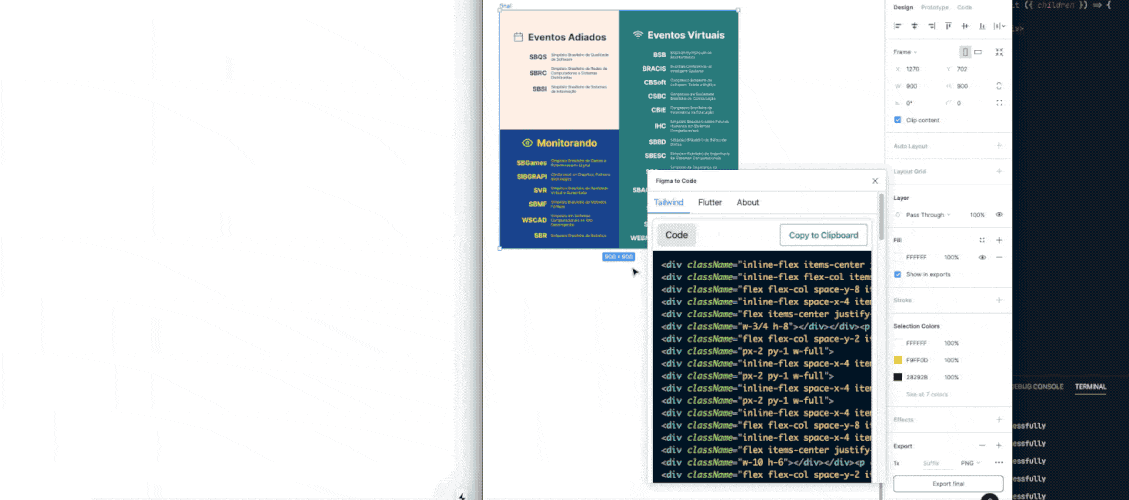Figma to Code
Most design to code plugins are bad, some are even paid. This project aims to raise the bar by generating responsive layouts in Tailwind, Flutter and SwiftUI. The plan is to eventually add support for Jetpack Compose and possibly standard HTML or other frameworks like React Native, Bootstrap or Fluent. Feedback, ideas and partnerships are appreciated!
How it works
This plugin takes an unconventional approach to improve code quality: it optimizes the layout before the conversion to code even begins. The standard Figma Nodes (what represents each layer) is a joy to work with, but it can't modify a layer without modifying the user project. For this reason, I decided to virtualize it, remaking the official implementation and naming them AltNodes. During the process of converting a Node into an AltNode, the plugin does the following:
That process can also be seen as an Intermediate Representation and might allow this plugin to, one day, live outside Figma.
Hard cases
When finding the unknown (a Group or Frame with more than one child and no vertical or horizontal alignment), Tailwind mode uses insets for best cases and left, top from standard CSS for the worst cases. Flutter mode uses Stack and Positioned.fill. Both are usually not recommended and can easily defeat the responsiveness. In many scenarios, just wrapping some elements in a Group or Frame can solve:
Tip: Instead of selecting the whole page, you can also select individual items. This can be useful for both debugging and componentization. For example: you can use the plugin to generate the code of a single element and then replicate it using a for-loop.
Todo
- Vectors (tricky in HTML, unsupported in Flutter)
- Images (they are local, how to support them?)
- Line/Star/Polygon (todo. Rectangle and Ellipse were prioritized and are more common)
- The source code is fully commented and there are more than 30 "todo"s there
Tailwind limitations
- Width: Tailwind has a maximum width of 256px. If an item passes this, the width will be set to
w-full(unless it is already relative likew-1/2,w-1/3, etc). This is usually a feature, but be careful: if most layers in your project are larger than 256px, the plugin's result might be less than optimal. - Height: The plugin avoids setting the height whenever possible, because width and height work differently in CSS.
h-fullmeans get the full height of the parent, but the parent must have it, whilew-fulldoesn't require it. During experiments, avoiding a fixed height, in most cases, brought improved responsiveness and avoided nondeterministic scenarios.
Flutter limits and ideas
- Align: currently items are aligned inside a Row/Column according to their average position. Todo: find a way to improve this.
- Unreadable code: output code is not formatted, but even dartpad offers a format button.
- Stack: in some simpler cases, a
Stackcould be replaced with aContainerand aBoxDecoration. Discover those cases and optimize them. - Material Styles: text could be matched to existing Material styles (like outputting
Headline6when text size is 20). - Identify FlatButtons: the plugin could identify specific buttons and output them instead of always using
ContainerorMaterial.
How to build the project
The project is configured to be built with Webpack or Rollup. The author couldn't find a way to correctly configure Svelte in Webpack, so Rollup was added. But Rollup is a lot less stable than Webpack and crashes regularly in watch mode when editing Typescript files. So, if you are going to work with Typescript only, I reccommend sticking with Webpack. If you are going to make changes in the UI, you need to use Rollup for now.
Issues
The Figma file for this README and icon is also open and welcome to changes! Check it here.
I took decisions thinking about how it would benefit the majority of people, but I can (and probably will!) be wrong many times. Found a bug? Have an idea for an improvement? Feel free to add an issue or email me. Pull requests are also more than welcome.





